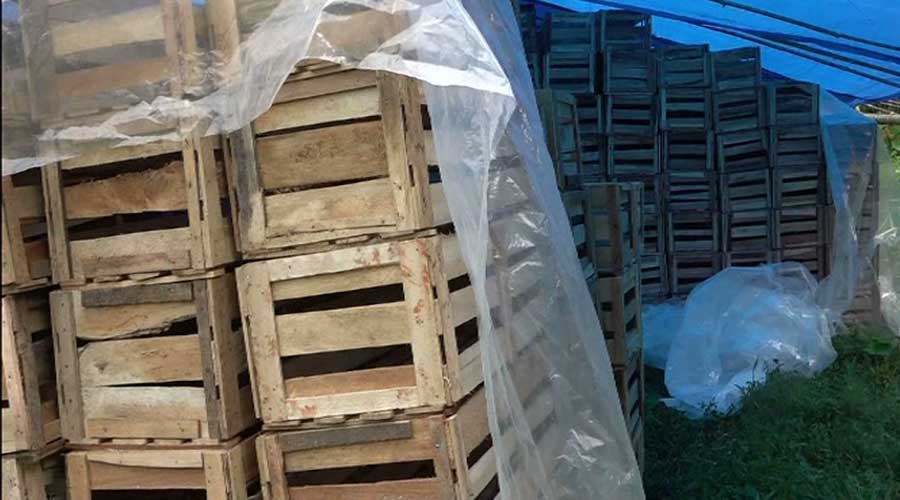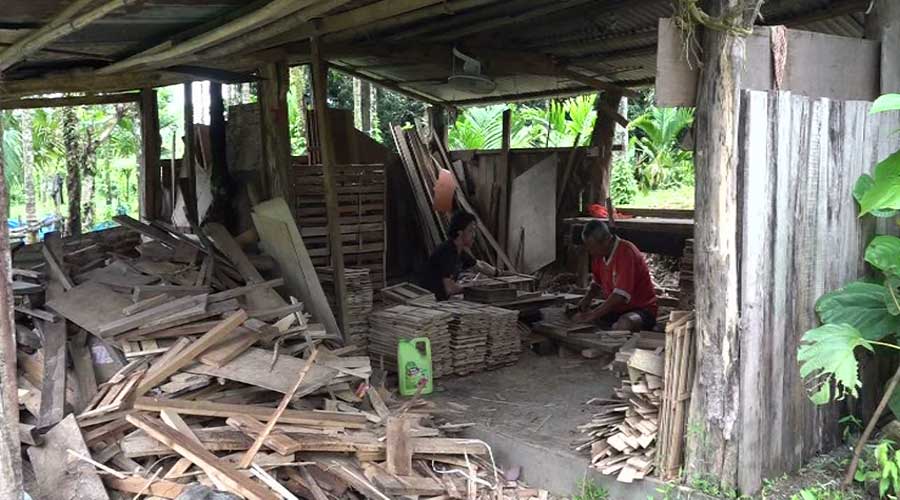
With the orange export season all set to begin by the mid next month, the two sawmills in Gelephu are scrambling to supply the desired number of wooden crates to the orange exporters. Wooden crates are used for packing oranges. Exporters raised the concern during a stakeholder meeting recently.
Some of the orange exporters have highlighted that they require more than 200,000 wooden crates. However, the two wood-based industries say they are able to produce only about 35,000 boxes.
This has sparked concerns among the exporters since oranges are easily perishable if not packaged in crates.
“We don’t mind buying wooden boxes at a high price. But if they fail to supply enough boxes, our goods will perish in no time, and farmers and exporters will have to bear significant monetary losses,” said one of the exporters, Sangay, who attended the meeting.
To meet the demand, some other exporters suggested importing crates from India.
“Limited production of wooden boxes in the country will result in short supply. If 50 per cent of the boxes are not imported from India, we will suffer losses because orange production is good this time. We have stocked the crop in large quantities at the depot,” said another Orange exporter, Thinley.
 The Chairperson of the Association of Wood-based Industry in Gelephu said only two of the six sawmills agreed to produce wooden crates. The other four declined citing it is not lucrative.
The Chairperson of the Association of Wood-based Industry in Gelephu said only two of the six sawmills agreed to produce wooden crates. The other four declined citing it is not lucrative.
“Buyers could have come to us with the required number of boxes. But they didn’t. At the last minute, we are struggling to meet the demand. Add to this, the production of wooden crates doesn’t guarantee sawmills with a good market,” explained the Chairperson of the Association of Wood-based Industry in Gelephu, Jambay Dorji,
Yeshi Wangmo is the owner of one of the two sawmills, which agreed to make wooden crates. She estimated to charge Nu 90 per crate. However, due to high labour charges and the cost of materials, production costs soared. This dashed her hopes of making income.
“There is no gain from doing such business. Firstly, it is so difficult to get timber. Then we have to cut wooden planks skillfully and then hammer the right size of nails. It is not a profitable business for me,” lamented Yeshi.
“With no experience in producing wooden crates, we ventured into it. So that is why we are unable to make the boxes in large quantities,” another sawmill owner, Wangchen Dorji said.
On Sarpang Forest Division Office’s part, they notified the wood-based industries in the district to scale up the production of orange crates. And this is as per the Agriculture Ministry’s directive on the economic recovery plan.
The directive’s other objective is to clear the stock of unsold timber mounted at various depots in the country.
“We reminded all the wood-based industries for making of wooden packaging boxes repeatedly and facilitated support for allotment of timber,” pointed out, Phub Dendup, the Chief Forest Officer at the Division of Forest in Sarpang.
The meeting also discussed the relocation of the orange depot at the dry port construction site near the Gelephu domestic airport.
However, since not many officials favoured this due to security reasons, the meeting decided that the depot will remain at its current place, which is near Gelephu thromde.
There are eight orange exporters in Sarpang and they exported about 750 tons of oranges to Bangladesh last year.
Karma Wangdi, Sarpang
Edited by Pema Lhaden












